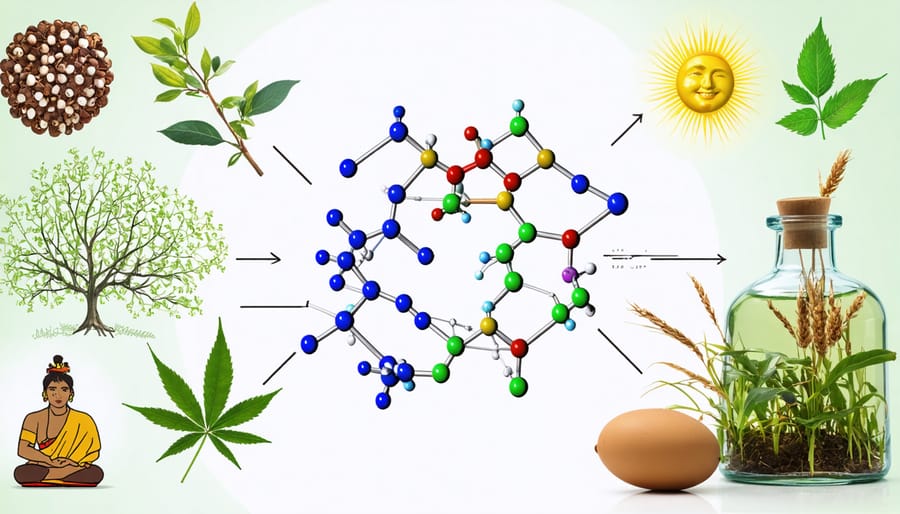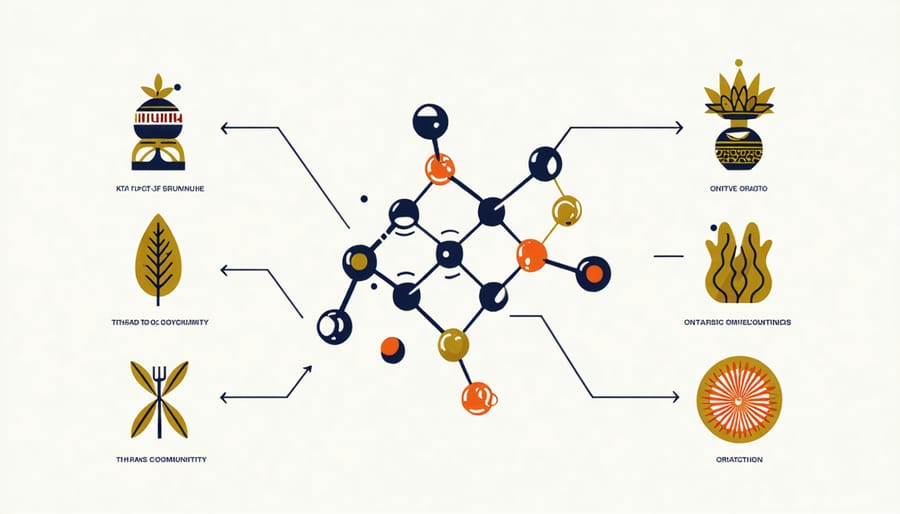How THCA Shapes Ontario’s Diverse Health Traditions

Explore the integration of THCA in Ontario’s vibrant cultural health practices by starting with these actionable steps. Understand the diverse applications of thca hemp flower in traditional and modern wellness routines, enhancing local holistic health approaches. Evaluate the potential health benefits that THCA contributes to both individual and community well-being, fostering a deeper connection with natural remedies. Investigate the intersection of THCA with regional sustainability efforts, emphasizing its role in environmentally conscious practices and the support of local agriculture. Engage with community leaders and professionals to gain insights into the societal impact of THCA, promoting informed dialogues about its place in Ontario’s cultural health landscape.
Understanding THCA: A Cultural Context
Defining THCA
THCA, or tetrahydrocannabinolic acid, is a naturally occurring compound found in cannabis plants, recognized for its potential health benefits without the psychoactive effects commonly associated with THC. As a precursor to THC, THCA transforms only when heated, meaning it does not produce a “high” when consumed raw. This property makes it particularly interesting within Ontario’s cultural health landscape, where integrating traditional and modern health practices is increasingly valued. THCA is studied for its possible anti-inflammatory, neuroprotective, and anti-emetic properties, suggesting various uses in managing conditions such as arthritis and epilepsy. This non-intoxicating cannabinoid fits well with the broader move towards sustainable and holistic wellness practices, as it aligns with a more natural approach to health management. Understanding THCA’s role enhances the appreciation of cannabis in both cultural and contemporary health contexts, offering diverse communities in Eastern Ontario a compelling example of how natural compounds can be integrated into daily wellness routines while respecting regional diversity and community concerns.

Historical Importance
The historical role of THCA (tetrahydrocannabinolic acid) in Ontario’s cultural health landscape is deeply rooted in traditional practices that date back centuries. Indigenous communities in this region have long recognized the potential health benefits of local plants, integrating them into their wellness routines and ceremonial activities. THCA, derived from the cannabis plant, has historically been utilized by these communities for its non-psychoactive properties, serving as a component in herbal remedies aimed at promoting health and treating various ailments. This tradition of medicinal plant use highlights a broader cultural ethos of sustainability and respect for natural resources, emphasizing a harmonious relationship with the environment. Over the years, as Ontario has evolved into a tapestry of diverse cultures, the appreciation for THCA’s historical role has grown. It bridges traditional knowledge with contemporary health approaches, resonating with a broad spectrum of communities interested in sustainable, natural health practices. Understanding THCA’s historical significance can encourage its respectful integration into modern wellness strategies, reinforcing cultural heritage while supporting community health.
Health Benefits and Science
Current Scientific Insights
Recent studies have begun to shed light on the intriguing health benefits of Tetrahydrocannabinolic acid (THCA), capturing the attention of Ontario’s diverse cultural communities. THCA, a non-psychoactive cannabinoid found in raw cannabis, is gaining significance for its potential anti-inflammatory, neuroprotective, and anti-emetic properties. Research reveals that THCA may help mitigate symptoms associated with chronic conditions such as arthritis and neurodegenerative diseases, offering a natural alternative within cultural health practices. This aligns with traditional healing methods prevalent among various cultural groups in Eastern Ontario.
Emerging evidence suggests that THCA interacts differently with the body’s endocannabinoid system compared to its well-known counterpart, THC, potentially providing therapeutic benefits without psychoactive effects. This aspect is particularly appealing to health-conscious residents and cultural practitioners who prioritize remedies that align with natural healing philosophies. However, while these findings are promising, ongoing research is critical to fully understand THCA’s role and efficacy, ensuring its safe integration into wellness routines. As communities in Ontario explore sustainable health practices, THCA’s potential benefits are beginning to resonate, enriching the region’s vibrant cultural health landscape.
Implementation in Health Practices
In Ontario, THCA is increasingly integrated into modern health practices, reflecting the province’s rich multicultural fabric. Communities across Ontario are harnessing THCA’s potential therapeutic benefits, particularly in pain management and inflammation reduction. Health practitioners are exploring THCA’s applications, often blending traditional healing philosophies with contemporary methods to address various health needs. This approach resonates well within community circles that emphasize natural remedies and holistic health, underscoring a shift towards more sustainable health solutions.
Ontarians are also keen on understanding how THCA fits into their everyday wellness routines. Educational workshops are being held to inform citizens about the responsible use of THCA, focusing on informed choices and its integration into local customs. This inclusive narrative is not just about embracing a modern health trend; it’s about connecting these practices with cultural roots and sustainability efforts. As Ontario continues to evolve, the thoughtful incorporation of THCA into health practices exemplifies the province’s dedication to a well-rounded and culturally sensitive healthcare environment.
Societal Impact within Ontario
Cultural Acceptance
In Ontario’s cultural health landscape, the acceptance of THCA is as varied as the province’s rich tapestry of communities. Many Indigenous groups have traditionally integrated natural remedies like THCA, recognizing its potential in holistic health practices. This aligns with their deep respect for nature’s offerings and sustainable living, reflecting the ancient teachings that emphasize harmony with the environment. Meanwhile, some East Asian communities in Eastern Ontario also resonate with THCA’s plant-based origins, incorporating it into wellness regimes reflective of their herbal medicine traditions. However, acceptance isn’t uniform across all cultural groups. Some Eastern European communities, with a focus on modern medicine, approach THCA with caution due to historical stigmas associated with cannabis-related products. But as societal perceptions shift and awareness grows about the potential benefits of THCA, there’s a noticeable trend towards greater openness and dialogue. This diverse acceptance underscores the cultural evolution towards integrating modern health practices with traditional wisdom, contributing to a more inclusive and sustainable health ecosystem in Ontario.

Legal Landscape
In Ontario, the legal landscape for THCA (tetrahydrocannabinolic acid) is characterized by its classification within the broader framework of cannabis regulations. Since the enactment of the Cannabis Act in 2018, which legalized cannabis for both recreational and medicinal use, the cultivation, sale, and consumption of cannabis-derived products, including THCA, have been carefully regulated to ensure public safety and compliance with federal and provincial laws. THCA, in its raw, non-psychoactive form, has garnered attention for its potential health benefits, contributing to its use in natural wellness practices prevalent among Ontario’s diverse communities. The regulatory framework mandates strict controls over the production and distribution processes, requiring licensed producers and retail entities to adhere to stringent quality and safety standards. This regulatory approach aims to balance accessibility with consumer protection, reflecting a commitment to sustainability and public health. As such, Ontario’s policy landscape remains dynamic, responding to ongoing research and community feedback to ensure culturally sensitive and inclusive access to THCA.
Social Challenges
The introduction of THCA in Ontario’s health landscape brings several social challenges and debates, largely revolving around accessibility, cultural perceptions, and economic implications. One of the primary concerns is ensuring equitable access across diverse communities, which raises questions about healthcare disparities and infrastructure. Additionally, integrating THCA into traditional health practices may challenge existing cultural norms, prompting a dialogue about respect for heritage versus modern adaptation. Economically, while THCA offers new employment opportunities, it also requires careful regulation to prevent exploitation and inequity. Addressing these multifaceted challenges necessitates a culturally sensitive approach that respects diverse values while fostering inclusion.
THCA and Sustainability
Sustainable Health Practices
THCA plays a pivotal role in promoting sustainable health practices across diverse communities in Ontario. By emphasizing holistic wellbeing, it supports cultural health traditions that are increasingly valued for their minimal ecological footprint. Integrating THCA into health practices aligns with global sustainability goals, reducing reliance on resource-intensive medical treatments and fostering resilient local ecosystems. Community gardens and cooperative models thrive, cultivating THCA-rich plants that contribute to both physical health and economic vitality. This approach not only preserves cultural heritage but also ensures access to sustainable health options, making it a meaningful part of Eastern Ontario’s vibrant cultural health landscape.

Community Wellness
THCA has emerged as a valuable contributor to community wellness in Ontario, fostering both physical health and cultural connections. By integrating into local health practices, THCA supports a holistic approach that resonates with Ontario’s diverse population. Its presence strengthens community ties while enhancing economic resilience by supporting local producers and businesses. This alignment with sustainable practices ensures that the benefits extend beyond individual health, promoting a robust, interconnected community fabric. By prioritizing inclusivity and sustainability, THCA plays a pivotal role in advancing a culturally dynamic and health-conscious society in Eastern Ontario.
Conclusion
As we conclude our exploration of THCA within Ontario’s cultural health landscape, it’s clear that this unique component is not only a significant piece of the past but also a pivotal force shaping the future of health and wellness in the region. Historically, THCA has been intertwined with various cultural practices, offering both medicinal and holistic benefits that have been acknowledged and celebrated by diverse communities. Its continued integration into modern wellness routines underscores its enduring impact and potential for enhancing quality of life.
As we look towards the future, THCA holds the promise of contributing meaningfully to a sustainable healthcare ecosystem. By supporting community-driven health initiatives, Ontario can leverage THCA’s benefits to foster inclusive and accessible health solutions that respect cultural diversity. This approach aligns with the region’s commitment to promoting environmental sustainability and community well-being, ensuring that the cultural health landscape is resilient and responsive to the needs of its residents.
Moreover, the societal impact of THCA continues to unfold, providing new opportunities for collaboration between professionals, community leaders, and culturally engaged citizens. These interactions can empower communities to make informed decisions, nurturing a spirit of inclusivity that respects both traditional and contemporary health practices.
In summary, THCA is not just a relic of the past but an active participant in shaping a vibrant, sustainable, and culturally rich future for Ontario’s health landscape. By recognizing its potential and embracing its role, Ontarians can pave the way for a health paradigm that values tradition while innovating for tomorrow.






